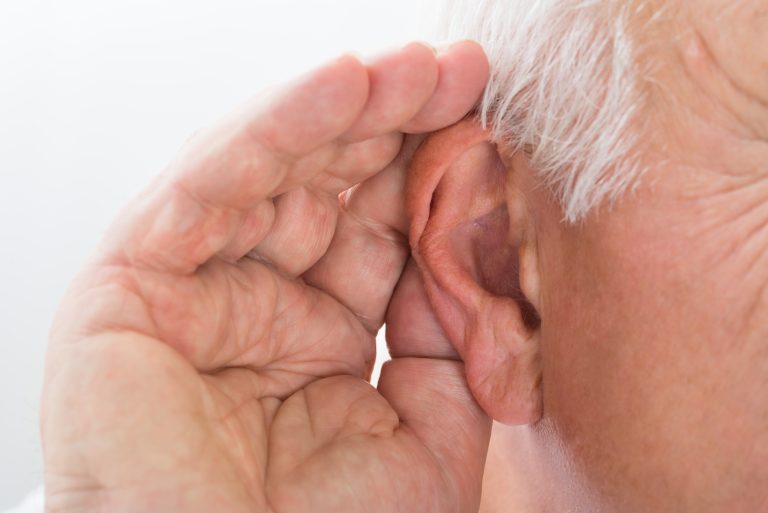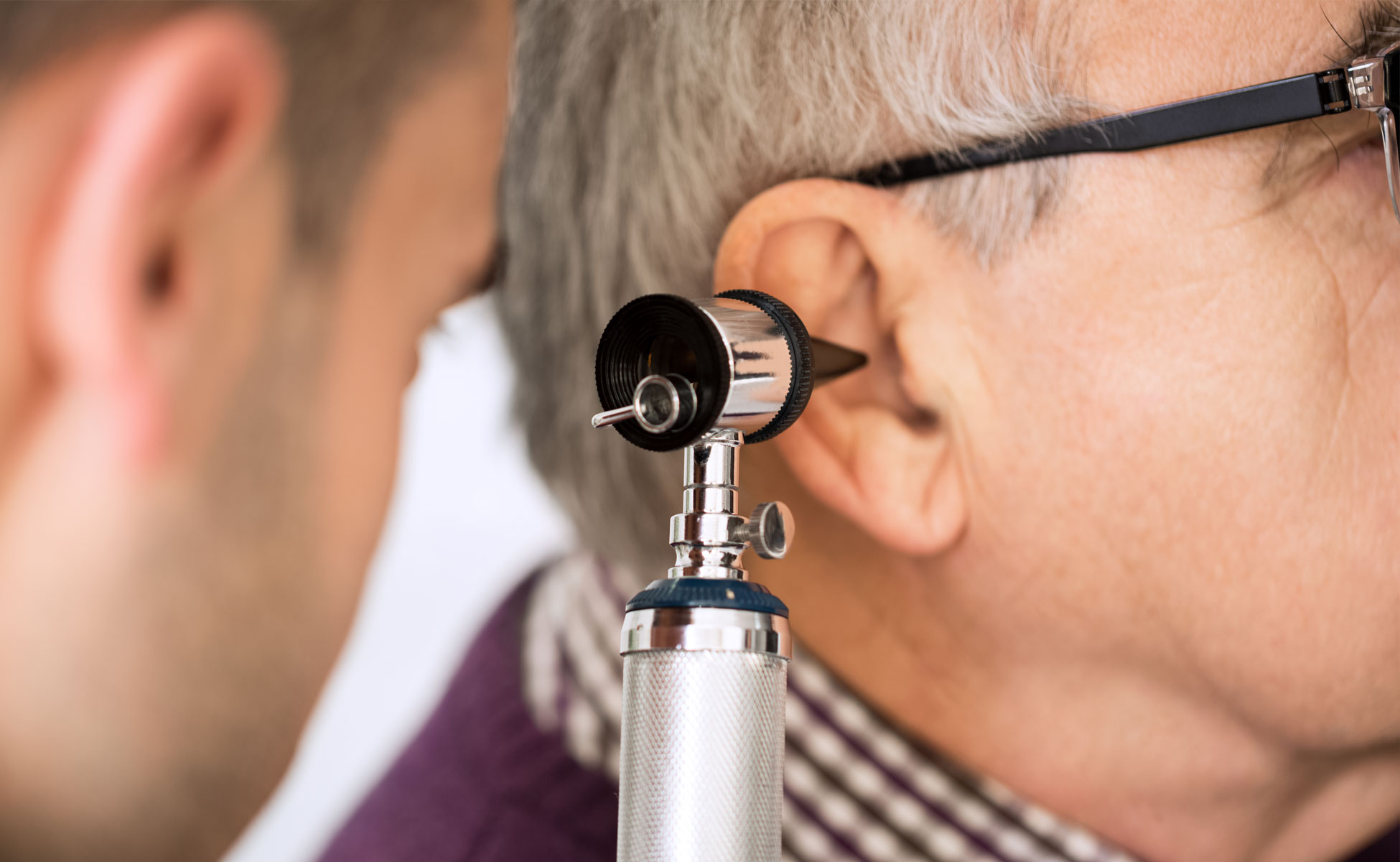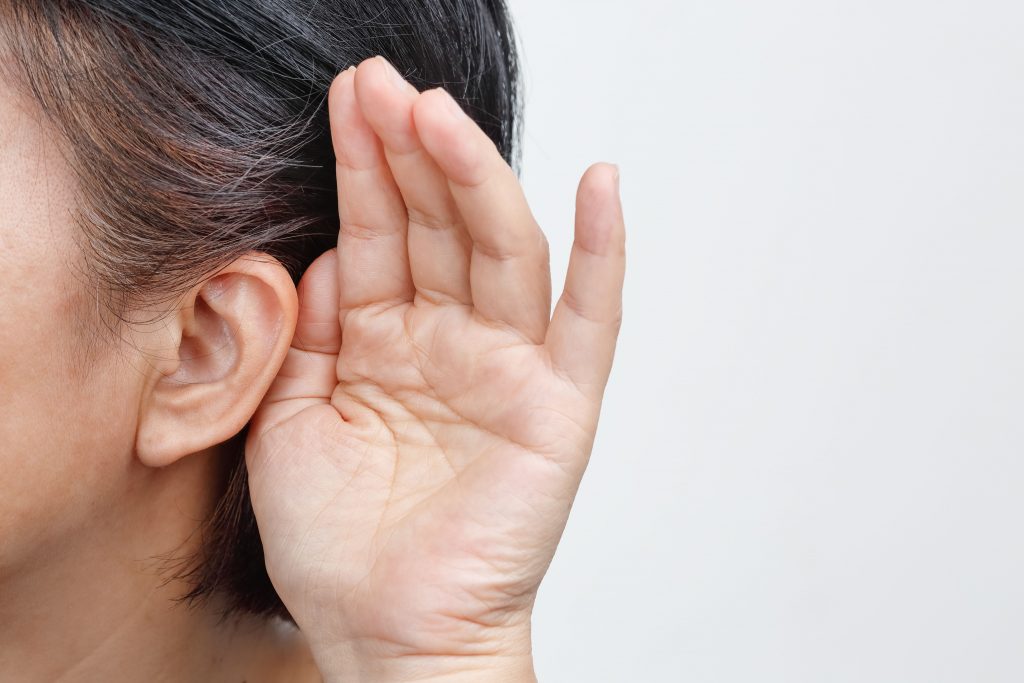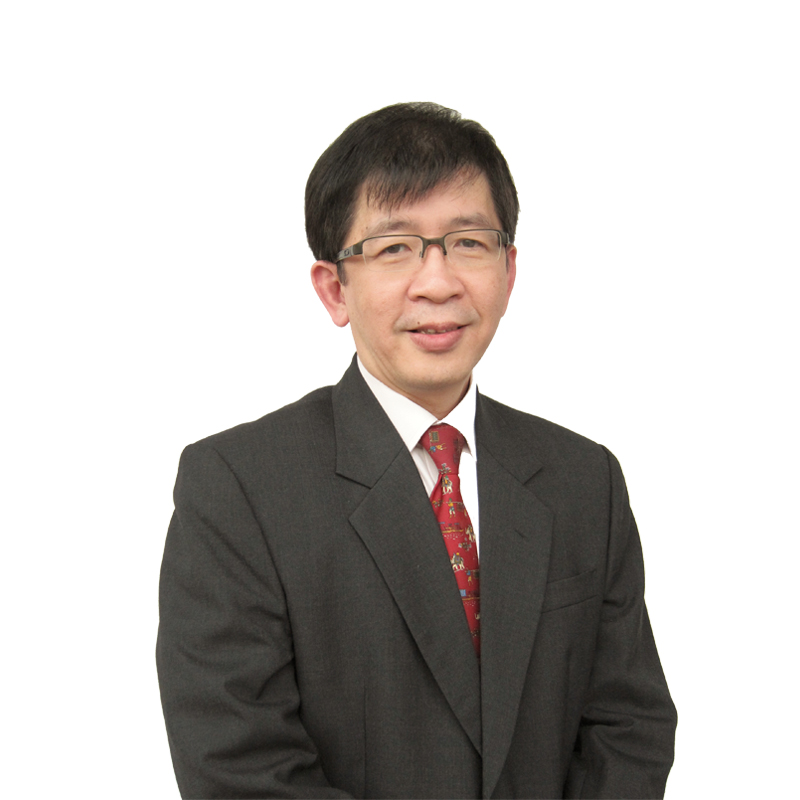Hearing Loss
What causes hearing loss?
Hearing loss can be caused by different factors, such as damage to the inner ear, build-up of earwax, ruptured eardrum, infections and sometimes tumours. The cause of hearing loss will differ based on the type of hearing loss you are experiencing.

Different types of Hearing Loss
Conductive Hearing Loss
Conductive hearing loss occurs when sound waves cannot be transmitted properly from the external environment to the cochlea. The problem could lie in the external ear canal, eardrum, middle ear bones or middle ear space.
This can sometimes be caused by blockage in the ear, such as earwax build-up, fluid, or damage to the eardrum. There is treatment and sometimes surgery that can be performed to resolve the problem and restore hearing.
Causes
- Blockage or obstruction in the external ear canal caused by wax, foreign body or infection (otitis externa)
- Perforated eardrum — usually a result of trauma or chronic infection
- Dislocated, damaged or fixed ossicles (bones in the inner ear – malleus, incus or stapes) — from trauma or chronic diseases that erode the ossicles over time(cholesteatoma) or otosclerosis that cause the ossicles to be fixed
- Otitis media — a middle ear infection, usually with fluid in the middle ear space
Sensorineural Hearing Loss
Sensorineural hearing loss occurs when there is damage to the hearing organ (cochlea) or hearing nerve (auditory nerve). This type hearing loss is usually permanent.
Causes
- Ageing (presbycusis)
- Exposure to loud noise – this can cause damage to the sensory cells in the cochlea, over long-term or sudden exposure
- Infections of the inner ear by viruses and bacteria (e.g. influenza, mumps, measles)
- Tumours of the vestibulocochlear nerve i.e. vestibular schwannoma
Patients can also experience mixed hearing loss, which is a combination of the two.
Is there a link between Tinnitus and Hearing Loss?
Tinnitus is a ringing heard in one, or both, of the ears and can be loud or soft. This can be an early sign of hearing loss, commonly seen in older people. Tinnitus is a symptom; and not a problem in itself – it can be a symptom of hearing loss, or several other health problems such as high blood pressure, allergies, or reaction to certain medication.

When should you see a doctor?
If you are experiencing the following symptoms, you should consult a doctor
- Having difficulty hearing on the phone
- Unable to follow conversations easily when multiple people are talking
- Have difficulty hearing when there is background noise present
- Need people to repeat what they are saying
- Turning the TV volume up so loud that that others complain
- Think that others seem to mumble
How can we prevent hearing loss?
Loud noises are one of the main causes of hearing loss. Exposure to noise from machinery, loud music, etc. can cause significant damage over time and result in permanent hearing loss. It can also contribute to tinnitus. Noise-related hearing loss is preventable. Take precautions and wear protective equipment if you are in environments with loud noises. Refrain from turning music or audio equipment such as speakers, headphones, and televisions to high volumes.
A punctured eardrum can also result in hearing loss. Avoid putting objects such as cotton swabs in your ear. Speak to your doctor if you are experiencing pain or have fluid draining from your ear.

How can hearing loss be treated?
Treatment options include:
1.Medical
Medical treatment can be an option depending on the underlying cause of hearing loss. Treatment can range from medications to surgical options.
Hearing loss due to blockage in the ear canal (earwax, foreign body) can be resolved through removal by an ENT surgeon.
If you have an external ear infection, antibiotics will be prescribed. If the eardrum is perforated surgery may be necessary, if the perforation persists for more than 3 months, or if there is discharge.
In the event of hearing loss due to old age, there is no treatment available. Your doctor will advise you on how to protect your hearing, or the option of hearing aids if necessary
2.Hearing Aids
Hearing aids are electronic devices that amplify sounds into your ear canal. They are useful for both conductive and sensorineural hearing loss. These hearing aids can in size from very small (completely-in-the-canal) to the traditional behind-the-ear hearing aids.
3.Hearing Implants
There are two kinds of surgical implants available to aid hearing.
Middle Ear Implants
Middle Ear implants are available for patients for whom hearing aids have proven ineffective. These implants cannot be used for those with sensorineural or conductive hearing loss. How the middle ear implant works is by attaching a transducer to the ossicles (bones in the middle ear) or part of the bone around the cochlea (bone of the inner ear), vibrating the middle ear structures and/or inner to amplify the transmission of sound.
Cochlear Implants
Cochlear implants for patients with moderate to severe sensorineural hearing loss. The implant consists of an electrode inserted into the cochlea to stimulate the nerve endings and bypass any problems that may exist. These implants can be used in children or adults.
Speak with your doctor about which option is best for you.

Our Specialist
Dr Leong Hoo Kwong is a Consultant ENT Surgeon who has broad experience in all aspects of Ear, Nose and Throat. He is one of the first in Singapore to be sent by the Ministry of Health to France/Switzerland for training in advanced ear and lateral skull base surgery.
He was Senior Lecturer and Consultant in the premier teaching National University Hospital and therefore has to treat patients and train younger specialists in all areas of ENT medicine and surgery. He has had 25 years of experience in private practice.
Read More






